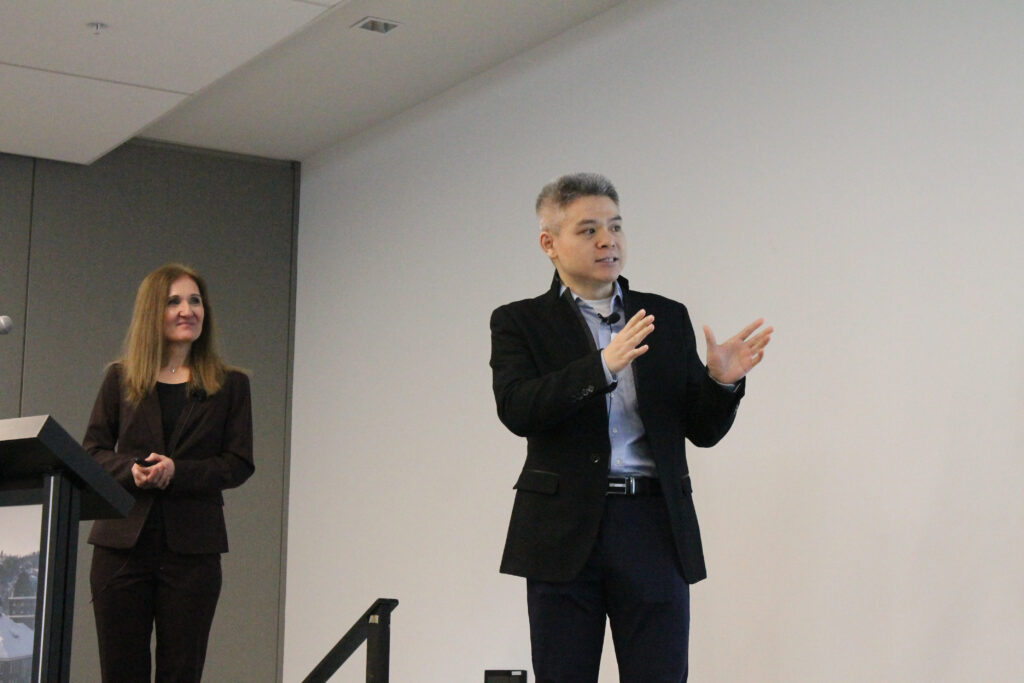New Hampshire Advantage Going Global

The world is coming to the Granite State as businesses from across the globe are setting up shop in order to get their cut of the ‘New Hampshire Advantage.’
The new report on New Hampshire Foreign Direct Investment prepared by the New Hampshire Department of Business and Economic Affairs, Plymouth State University, and the World Affairs Council of New Hampshire shows New Hampshire gaining a leading edge in attracting businesses from nearly every continent.
New Hampshire is outperforming the national average when it comes to employment from foreign companies and investment.
“New Hampshire’s low taxes, skilled workforce, and proximity to domestic and foreign markets are advantages few states can offer to companies poised for international growth,” BEA Commissioner Taylor Caswell said. “These data and findings will be useful in our efforts to attract businesses to New Hampshire and create high-paying jobs for years to come.”
According to the report, written by PSU professors Roxana Wright and Chen Wu, New Hampshire outperformed the national average when it comes to investment from global firms. Foreign subsidiaries employed 50,700 people in the state in 2020, which is 8 percent of the state’s overall private-sector employment, higher than the national average of 6 percent. Right said this level of global investment runs throughout all industries and locations in the Granite State, strengthening the New Hampshire economy.

Plymouth State University professors Roxana Wright, left, and Chen Wu present their findings in the 2021-2022 NH Foreign Direct Investment Report at the New Hampshire Foreign Direct Investment Forum on Thursday
“Foreign direct investment and international connections touch many of the industry segments and all key supply chain activities in New Hampshire,” Wright said. “And international businesses contribute to financing availability for private and corporate residents, to the growth of local markets and industries, and to the resilience of production capacity.”
The PSU report found that in 2022 nearly 180 foreign companies headquartered in 23 foreign countries had more than 360 subsidiaries from some 50 industries operating across the ten counties in New Hampshire.
Most of the foreign-owned subsidiaries are in the finance and insurance industry, making up 28 percent of foreign firms. About 75 percent of these finance companies operate in Hillsborough and Rockingham counties, but the rest of the state is benefiting from foreign investments, the report found.
Wright and Wu’s report found there is plenty of potential for growth in foreign manufacturing investment in the North Country as well.
After finance and insurance companies, foreign investment is spread evenly across a wide spectrum of industries, including retail, research, manufacturing, real estate, and transportation. The foreign investment throughout New Hampshire’s economy shows the opportunity companies around the world see in the Granite State, and it makes local industries stronger, Wu and Wright say.
“The diverse presence of foreign firms within industries once again demonstrates the high level of integration that foreign businesses have with a wide range of lucrative activities in the state,” Wu and Wright’s report states. “For successful operations, it can be expected that these firms collaborate and partner with local, domestic, and non-domestic companies and institutions and are an intricate part of New Hampshire business.”
Canada leads the way when it comes to foreign companies investing in New Hampshire, with 118 subsidiaries in 2022. They’re followed by the United Kingdom’s 53, Switzerland’s 30, Japan’s 25, and Germany’s 23.
These foreign firms are spread unevenly throughout the state, with most in the southern parts of New Hampshire, dominated by Hillsborough and Rockingham counties who host companies from around the globe. The Norty Country’s Coos County is home to just two foreign subsidiaries, both from Canada.
The full report is available on PSU’s webpage.



